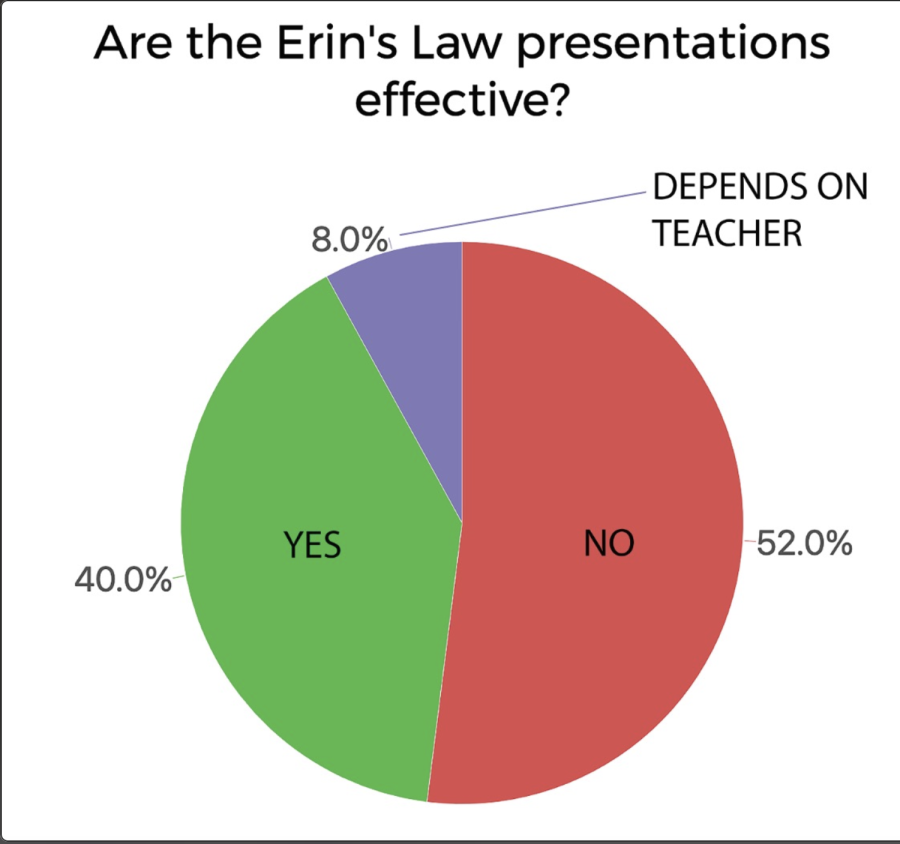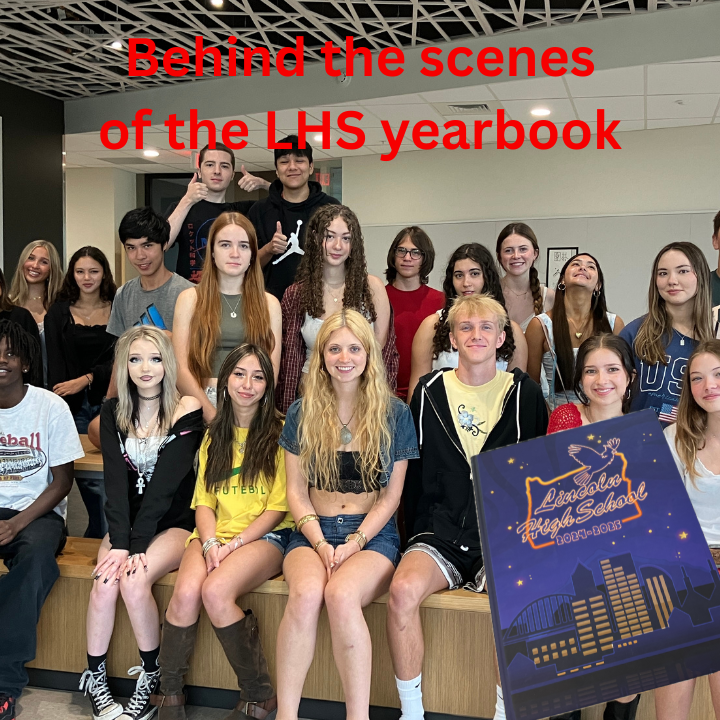Teachers and students share mixed feelings about Erin’s Law lessons
Many Lincoln students feel that Erin’s Law isn’t being taught effectively. In a survey of 31 students, over half weren’t satisfied with the Erin’s Law presentations.
November 29, 2022
On Oct. 26, teachers presented the first of four Erin’s Law lessons. However, many teachers and students have mixed feelings about the presentation of the subject. In a survey of 31 students, 52% felt as though Erin’s Law wasn’t being taught effectively, while 8% thought that the quality of the presentation depended on the teacher.
Erin’s Law is the result of a state law (SB 856) mandating that public schools implement a series of lessons taught by teachers about student safety, sexual harassment, and healthy relationships. Freshmen will be learning these lessons with their Freshman Leadership and Inquiry (FLI) classes, while sophomores and upperclassmen will do them in their second period class. The first presentation was about healthy relationships and recognizing abuse.
Sophomore Luella Gerth shares the sentiment of many students about the lack of impact of Erin’s Law.
“I don’t think [the presentation] talks effectively about [sexual harassment and healthy relationships]. I think it might be more effective to have it integrated into health class or taught in a way other than just a teacher reading a slideshow,” said Gerth.
Gerth has heard other students discussing how they don’t feel like the Erin’s Law lessons are helpful.
“I think a lot of people have been feeling like it’s repetitive, unnecessary and unengaging,” Gerth said.
Sarah Bestor, a math teacher at Lincoln, believes Erin’s Law is incredibly important and thinks that the presentations are a great way of teaching about student safety.
“I’m a really firm believer that knowledge is power in a lot of these situations, and I think that we need to do everything we can to try to help people be knowledgeable,” Bestor said. “For me, the presentation went really well.”
However, other teachers believe the slides they were supplied with and the time they had to prepare felt rushed and impersonal. A teacher who requested anonymity explained their struggles with teaching the lessons.
“We were given the materials two or three days before we presented it to the class,” said the teacher. “It doesn’t matter how many slides you have in that deck. For how long I have to prepare it, it doesn’t prepare me for how to engage in that content effectively with students.”
Bestor also acknowledges that there will be issues with the presentation, but attributes this to how it must work throughout the district. However, she feels like the slideshow is a great starting place in teaching Erin’s Law.
“I think that there are a lot of things that come out of having a slideshow. It holds everyone to a standard,” she said. ““[It gives] a basis of what needs to be covered, and I can trust myself…to be able to further knowledge in places.”
The teacher who requested anonymity didn’t feel prepared to teach the provided lessons.
“My comfort and my skill set don’t prepare me to teach [the lessons] effectively,” said the teacher.
Bestor thinks discomfort can be minimized through talking about it.
“We aren’t professionally trained in this and so it can feel really scary to have to teach something like this…” she said. “[However,] if we continue to say ‘I’m not comfortable with this,’ or ‘This is taboo,’ it makes it so it’s talked about less.”




